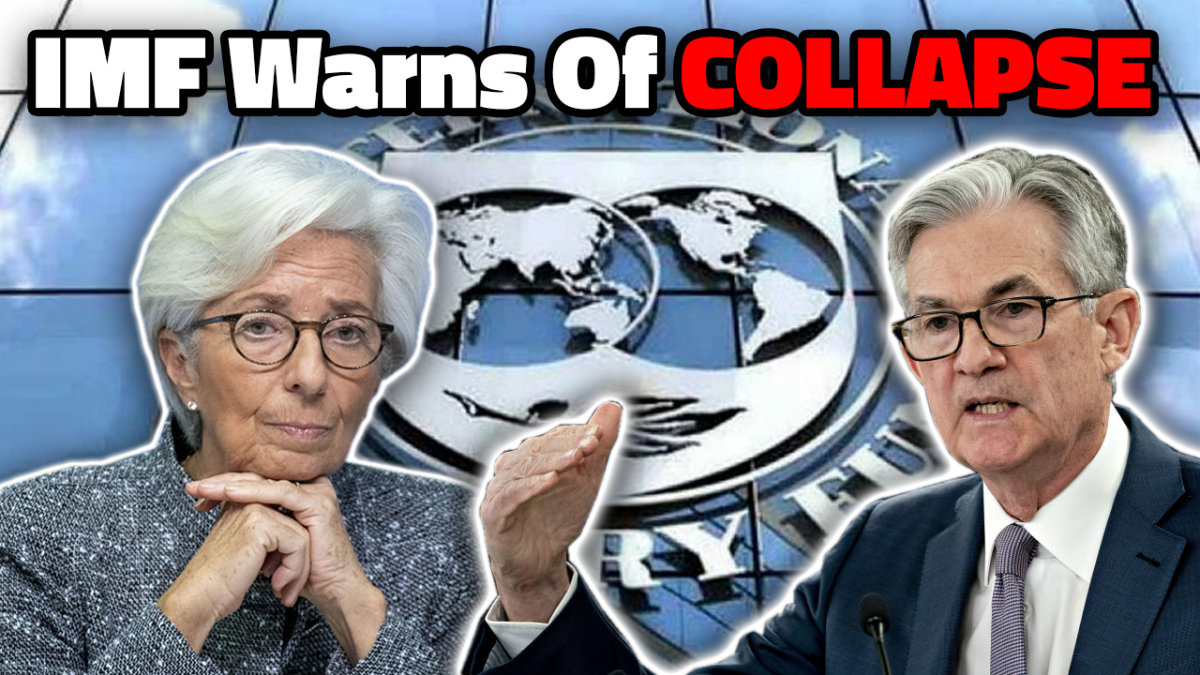Listen To This Episode:
In this episode of Bitcoin Magazine’s “Fed Watch'' podcast, Christian Keroles and I sat down for our first ever live stream as part of the new Bitcoin Magazine live show. Going forward, we will be recording live at approximately 2:00 p.m. Eastern Time every Tuesday. Come join us and as we get a hang of it, we might be able to answer live questions from the chat.
This week, we went on a whirlwind tour of macro economics. First, we listened and respond to three clips of Federal Reserve Chairman Jerome Powell’s testimony in front of Congress where he retired the term “transitory.” Next, we did a quick reading from an IMF blog post on the debt crisis in low-income countries. Third, we discussed the central bank of China, the PBoC, cutting its reserve requirement ratio (RRR) by 50 basis points (bps) and the default of Evergrande. Lastly, we riffed on bitcoin and covered several of our ongoing theses about macro and geopolitics, why we are bullish on the U.S. and bearish on Europe. It was a huge live show, I think you all will really enjoy this one.
Fed’s Powell Retires “Transitory”
We had three clips of Powell that we listened to. Each allowed us to discuss different aspects of the Fed, its monetary policy and perhaps tease out its inner thoughts. So many pundits and analysts of the Fed don’t even watch the actual testimony. They get riled up by headlines or some journalist’s take of what Powell said. The general, sound-money-oriented public has a bias of thinking these people are evil. We think central bankers are misguided and partial, but we actually watched the testimony to form our own opinions, and took you along with us.
Our discussion included parts on transitory or not, a global low interest rate environment, inflation forecasting problems based on non-linear supply side effects and whether the taper will be accelerated or not.
IMF Sees Economic Collapse In Low-Income Countries
In a blog post from December 2, IMF President Kristalina Georgieva wrote, “We may see economic collapse in some countries unless G20 creditors agree to accelerate debt restructurings and suspend debt service while the restructurings are being negotiated.”
This is very worrying. These countries have had 12 to 18 months of deferment on their international loans, yet they still cannot pay them? If they are unable to pay them after a year-long deferment, what makes anyone think that restructuring will help?
These countries are in real trouble, and that fits with our thesis that emerging markets benefited over the last 50 years of an easy credit environment. Now that the easy credit environment is over, they are going to face extreme burdens in continuing their previous level of economic activity.
China Cuts RRR For Banks And Evergrande Default
Our last stop was China. We covered the Fed, we brought Europe into our discussion, and then we covered the People’s Bank of China. This week, it announced a 50 bps cut to its Reserve Requirement Ratio (RRR), freeing up ¥1.2 trillion in the hopes that banks will go out and lend.
This follows a similar cut earlier this year in July, which supposedly freed up ¥1 trillion. It must not have had the intended effect, or the economy is much worse than earlier estimated, because why would it have to do it again, and/or why would it expect better results this time?
If banks are not lending, it’s not because they don’t have the reserves. There have been empirical studies relating to RRR — banks lend first, then go out and find the needed reserves. Giving banks room in the RRR does not make them want to go out and lend.
This also occurs right when Evergrande is facing imminent default of the offshore debt, if it hasn’t defaulted yet at the time of writing. Reports are that Evergrande will default on $19 billion in international bonds and the second-largest international debtor in their real estate sector, Kaisa, has also defaulted on $12 billion in offshore debt. The contagion continues.
Lastly, we compared and contrasted the sentiment in recent statements from the PBoC and the Fed. The global financial reality is very similar for these two countries, indeed they are very closely intermingled, yet where Powell paints the story that the economy is doing very well and there is a danger toward too much growth and inflation, the PBoC says that the central bank needs to inject liquidity support into the economy in advance to prepare for potential challenges.
The contrast is apparent. The Fed is providing positive forward guidance and the PBoC is negative.
If you enjoyed this content please subscribe and review on iTunes to help others find the show.
Links
- Powell testimony clip one: https://youtu.be/JJxqiyKIEW8?t=1937
- Powell testimony clip two: https://youtu.be/JJxqiyKIEW8?t=3596
- Powell testimony clip three: https://youtu.be/JJxqiyKIEW8?t=4092
- IMF blog: https://blogs.imf.org/2021/12/02/the-g20-common-framework-for-debt-treatments-must-be-stepped-up/
- China RRR cut: https://archive.ph/1KRUJ
Evergrande default: https://www.reuters.com/world/china/developer-china-evergrandes-shares-set-rise-66-restructuring-looms-2021-12-07/











